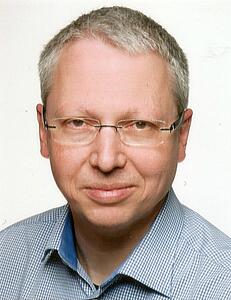Bitcoin & blockchain: Michael Carl on the FinTech of the future
For only recently, the Managing Director Research & Consulting of 2b AHEAD ThinkTank has conducted a trend study on the future of banks, a subject the experienced lecturer and keynote speaker also talks about in a trendsetting presentation. In the published research results, blockchains also play a major role. For the technology they are based upon could render banks and other financial services superfluous. But how do blockchains work in the first place?
Michael Carl compares a blockchain with a cash book in which all transactions, one after the other, are being entered in a database. Similar to a chain, this database is continuously expanded by additional data records (= blocks). „What is missing, however, is a central supervisory authority such as, for instance, a bank“, explains the futurologist. “The supervision rather lies in the hands of a multitude of internet users.“
In addition, all the blockchain’s data is not stored on a central server but on many computers simultaneously where the data is then updated after each transaction. They are therefore considered to be virtually tamper-proof. Michael Carl adds: „By means of a blockchain, transactions can be processed quicker, easier and more cost-effective.“ They thus could substitute banks as intermediaries in the transactions. However, it’s not always about financial transactions. The options a blockchain provides are versatile and so the technology can also be used for other data records such as the conclusion of online contracts or the safe exchange of work documents, for instance.
Bitcoins are frequently mentioned in the same breath as blockchains. Said digital currency is the most popular and oldest of the established blockchain applications. Currently, a new record high is being reported almost every day. Critics warn against a speculation bubble. US star economist Joseph Stiglitz - who was awarded the Alfred Nobel Memorial Prize for economics in 2001 - even demands a ban on bitcoins. To him digital currencies do not have a real purpose and therefore should be prohibited. Michael Carl takes a completely different view, however: „To ban bitcoins is just about as realistic as wanting to shut down the internet.“
„Of course: Based on the standards for traditional currencies, bitcoins and all the numerous other digital currencies are speculative and uncertain as they are not subjected to any official regulation“, says the Global Topspeaker. Those who measure innovations based on the criteria for what already exits risk overlooking the potential of the new. „This discussion only leads to a dead end. Let’s rather focus on the opportunities the digital currencies do offer regarding contract management and a new way of processing personal data.“
Interested parties will find a detailed analysis on the developments regarding blockchain solutions in the trend study „Die Zukunft des geistigen Eigentums“ (The future of intellectual property; in German).

